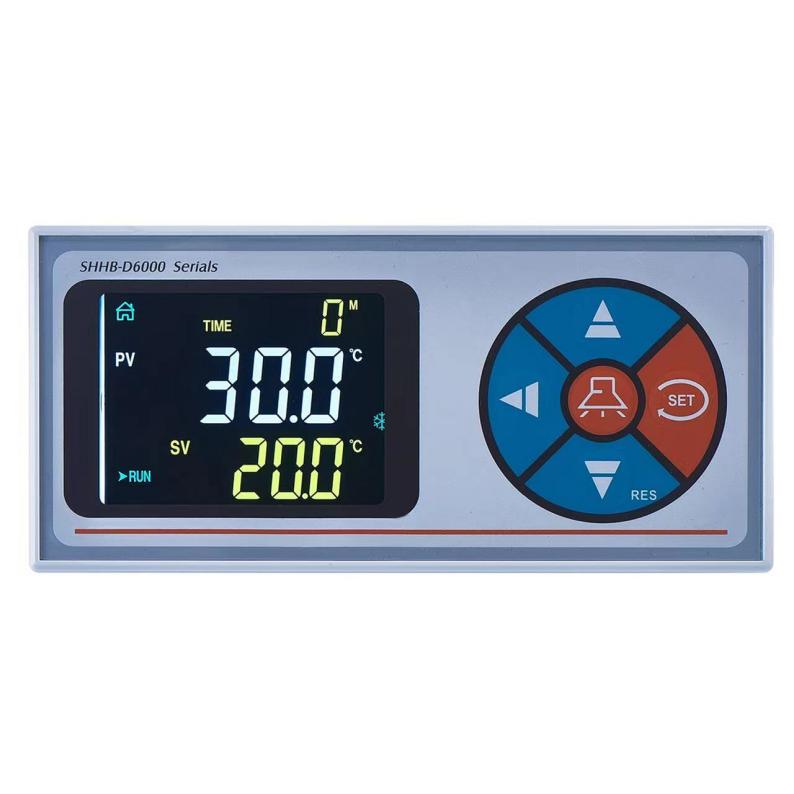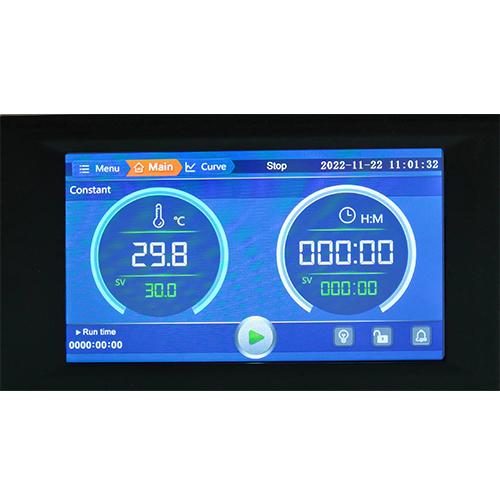
SHHB-D6106-T Biochemical mold incubator controller is applicable to automatic control of biochemical incubator with different functions. It has good anti-interference ability to ensure rapid temperature rise and more accurate operation.

SHRHP-T1006-T Biochemical mold incubator controller is applicable to automatic control of biochemical incubator with different functions. It has good anti-interference ability to ensure rapid temperature rise and more accurate operation.
During the experimental process, the biochemical incubator and the mold incubator each play important roles. The biochemical incubator is mainly used for cultivating cells and microorganisms, while the mold incubator is specifically used for cultivating molds. These two types of incubators have different characteristics and uses in the experiment, and will be analyzed in detail below.
I. Biochemical incubator
A biochemical incubator is a precision laboratory equipment that can simulate the environmental conditions required for cell growth, such as temperature, humidity, and gas concentration, in order to optimize the environment of the growth chamber for the growth of cultured cells. It is crucial to use it.
1. Provide a stable growth environment
The biochemical incubator can provide stable environmental conditions such as temperature, humidity, and gas concentration, ensuring that cells grow and reproduce in an optimal state. At the same time, the biochemical incubator also has an advanced control system that can achieve * * control of temperature, humidity, and gas concentration, thereby ensuring the accuracy and reliability of experimental results.
2. Suitable for various cell cultures
The biochemical incubator is suitable for various cell cultures, such as primary cells, passage cells, stem cells, etc. At the same time, the biochemical incubator is also suitable for the cultivation and identification of microorganisms, as well as the preservation and research of some special biological materials.
3. Improve experimental efficiency
The biochemical incubator can achieve multiple experiments simultaneously and improve experimental efficiency. Due to the stable internal environment of the biochemical incubator, the repeatability and comparability of experimental results can be ensured, thereby reducing experimental errors and time waste.
II. Mold incubator
A mold incubator is a laboratory equipment specifically used for cultivating molds. Compared to a biochemical incubator, it has unique characteristics and uses in certain aspects.
1. Dedicated to mold cultivation
The mold incubator is dedicated to the cultivation and research of molds, and its internal environment can meet the specific conditions required for mold growth. For example, mold incubators typically have high temperature and humidity environments, as well as special ventilation and lighting conditions, which are conducive to the growth and reproduction of molds.
2. Suitable for testing in industries such as food and medicine
Mold incubators have a wide range of applications in the detection of food, pharmaceutical, and other industries. For example, in the food industry, conducting mold testing on food is one of the important means to ensure food safety. By using a mold incubator, it is possible to simulate the storage conditions of food in natural environments, thereby detecting and studying mold in food. In addition, in the pharmaceutical industry, mold incubators are also widely used for sterility testing and quality control of drugs
Control, etc
3. Improve detection accuracy
The mold incubator can provide a stable mold growth environment, ensuring the accuracy of experimental results and reliable transmission. Compared to the plate culture method, the mold incubator can better control environmental conditions such as temperature, humidity, and gas concentration, avoiding the problem of affecting experimental results due to environmental changes. In addition, the mold incubator also has the advantage of strong traceability, which can record the conditions and results of each experiment, facilitating subsequent data analysis and research.